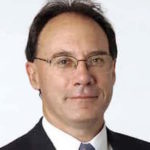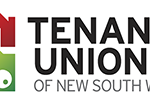National Sorry Day: the healing journey of a lifetime
On National Sorry Day we raise awareness of the Stolen Generations and the ongoing support they need. Florence Onus, Chair of the Healing Foundation’s Stolen Generations Reference Committee, says although the healing journey is different for everyone and could take a lifetime, there’s things we all can do.
Ever since the first Sorry Day in 1998 the Healing Foundation has been working with Indigenous and non-Indigenous people to raise awareness of the Stolen Generations and the ongoing support members need. The national apology from former Prime Minister Kevin Rudd in Parliament acknowledged the trauma and grief suffered by Aboriginal and Torres Strait Islander people as a result of past government policies, particularly the removal of children from their families.
The alienation of Stolen Generations’ members from their families, identity, land, language and culture continues to have a profound impact on individuals, families and communities. So how can we help survivors in their healing journeys? Observing National Sorry Day is part of the support we can give. It’s a way to draw attention to the Stolen Generations and the ongoing issues they face.
I am a member of the Stolen Generation myself. I’m the fourth generation of my family that has suffered removal from land, culture and each other. With some families having experienced five or six generations of children removed from their parents, some survivors need ongoing support. The healing journey is different for everyone, depending on their experiences. This journey takes a lifetime for some. Many who have faced sexual abuse or physical or emotional trauma in childhood foster homes live broken lives today, and nothing can repair the damage that has been done.
But there are things we can do. Healing centres would be a great way to start. These are culturally safe spaces with culturally appropriate healing programs, therapy and support. Non-Indigenous people can also play a practical role helping survivors of the Stolen Generations. Everyone can make a difference in their own community. Do Traditional Owners live in your area? Why don’t you try to get to know them, see if and how you can help them. I think most Indigenous community groups will welcome non-Indigenous people willing to volunteer their skills or resources to help establish a local healing centre.
Another vital part of healing and reconciliation is education. Did you know that the topic of Stolen Generations is taught differently from state to state? Some states cover it in their school curriculum while others don’t.
So part of our – and everybody’s – work on this National Sorry Day is to educate people about the Stolen Generations and the ongoing support they need.
Florence Onus is a descendant of the Birri-Gubba and Kairi/Bidjara clans of Queensland and a survivor of the Stolen Generations. She is an advocate for social justice and human rights and has led numerous local campaigns supporting a range of causes including the Stolen Generations. She is currently the Chair of the Stolen Generations Reference Committee for the Healing Foundation.












Cheryl McDonnell
May 26, 2016 at 10:17 pm
Sorry
Dear Florence,
I am sorry. I am sorry for the harm caused to you, your family and all the ancestors who have been harmed by decisions and actions of government and officers of government as well as the harm caused by landholders who have stolen land and desecrated sacred sites. I am sorry for all forms of harm and all racist actions including rape, murder, kidnap, and desecration of you and your ancestors and their contemporaries by my ancestors and their contemporaries. I am sorry for the many generations of children who have been stolen from their parents, grandparents and aunties, uncles, cousins. I am sorry for the massacres of family groups that took place in so many places throughout time since your country was invaded.
I can never make up for the loss, but I can say sorry.
My heart goes out to your heart
If there are ways in which I can hold a space for you that helps with your healing please say so. Whatever it is in my capacity to do, I will.
Sincerely
Cheryl McDonnell